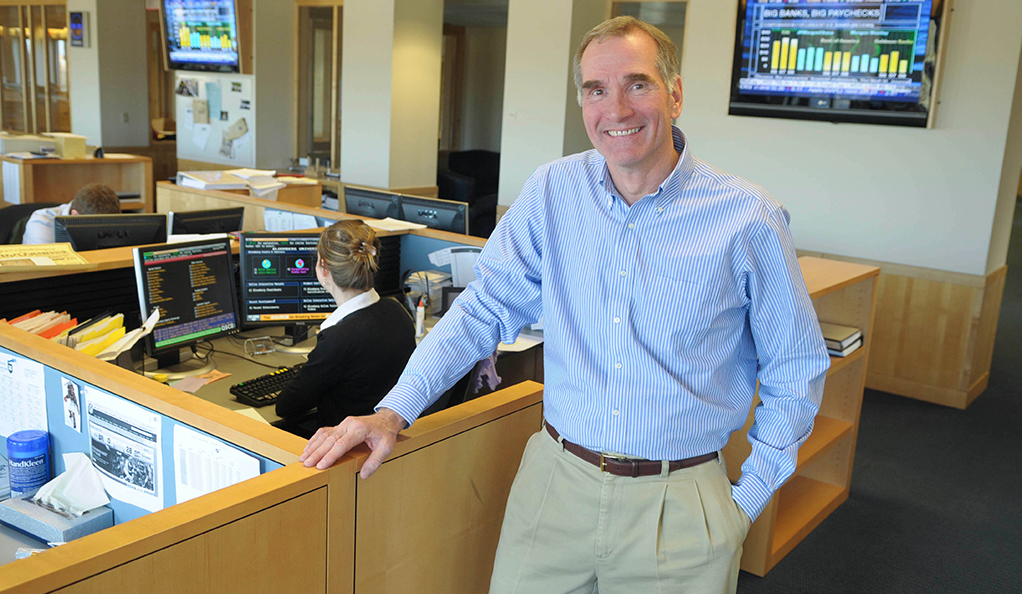
The lives of financial titans can seem otherworldly, replete with the trinkets of absurd wealth that come from commanding personal billions.
Then there’s David Swensen, the one-time Wall Streeter who passed up all that and instead focused on something larger than himself: building a massive gift for the benefit of generations of students to come.
The longtime Yale Endowment chief investment officer passed away recently at age 67. He’s not well known outside academic and finance circles, but his investment thinking revolutionized how colleges manage their funds. At Yale, he flipped the sleepy world of endowments on its head, turning $1 billion in 1985 into $31.2 billion in 2020.
Along the way, he managed to quietly influence an entire generation of money managers, many of them his protégés — some of them women, an overdue change Swensen vigorously promoted — who now manage money at colleges and institutions across the country.
Most importantly, as Swensen himself would say, his methods grew the fund that enables thousands of academically gifted young people to come to Yale and study, regardless of ability to pay.
“One of the things that I care most deeply about is that notion that anyone who qualifies for admission can afford to go to Yale, and financial aid is a huge part of what the endowment does,” he told The New York Times in 2014.
Our connection as a firm to Swensen is a step removed but very much felt every day in our work as investment managers. Charley Ellis, a longtime chair of the Yale Endowment, is a member of the Investment Committee at Rebalance.
Ellis also served on the board at Vanguard, where he and Burt Malkiel — the Princeton professor and author of A Random Walk Down Wall Street, who is also on our Investment Committee — worked alongside the late John Bogle, a giant in the industry and one of Swensen’s key professional role models as an investor.
Like Ellis, Malkiel and Bogle, Swensen believed strongly in diversification. As Chris Arnold at NPR put it, diversification fosters strength: A table with 10 legs will remain steady even if a few of them wobble.
Makiel, of course, has long advocated for broad diversification through low-cost index fund investing, a trend that has taken off since the early days of Vanguard and Bogle’s relentless dedication to making such diversification cost-effective for small investors.
Inspired by mission
The drive to lower costs while increasing access to quality investments has come to influence not only the world’s largest institutional investors but also individual retirement investors by the millions. They have rewarded disciplined fund managers who keep costs low and deliver steady but powerful long-term results.
Swensen was the son and grandson of college professors, a tall, lean man who brooked no Wall Street bluster, having been there early in his career. Often and loudly, he publicly blasted high mutual fund fees and the managers who charged them.
He took a massive pay cut to accept the challenge at Yale but never once questioned the purpose of his life. At Yale he was unassuming, always positive and a strong advocate for his colleagues, calling work early to go play an afternoon of softball or, if need be, carting in a keg if things ran late. His books quickly became required reading for college business courses.
Swensen “inspired people the same way he attracted them,” Andy Golden, who runs Princeton’s endowment, told The New York Times. “He showed that there was a way to compete hard and well in financial markets, but to have our lives be about something that mattered more.”
It was his sense of mission that mattered most, something that we reflect on regularly here at Rebalance. We believe that mission is the key to long-term success for our clients and for the health of the company.
That simple mission is to work hard to build something greater than ourselves — to help finance the lives and legacies of everyday savers who would otherwise fall victim to unnecessarily expensive and poor performing investments.
Swensen’s presence will be sorely missed, but the mission lives on. His example, in life and in his groundbreaking work, surely will be felt across generations.





